Part Two: The Biblical Practice of Government
Chapter 6: Biblically Assessing the Declaration of Independence
A well-known pastor and theologian once said:
Over the past several centuries, people have mistakenly linked democracy and political freedom to Christianity. That’s why many contemporary evangelicals believe the American Revolution was completely justified, both politically and scripturally. They follow the arguments of the Declaration of Independence, which declares that life, liberty, and the pursuit of happiness are Divinely endowed rights. Therefore those believers say such rights are part of a Christian worldview, worth attaining and defending at all cost including military insurrection at times. But such a position is contrary to the clear teachings and commands of Romans 13:1-7. So the United States was actually born out of a violation of New Testament principles, and any blessings God has bestowed on America have come in spite of that disobedience by the Founding Fathers.[14] 14. This is the perspective of John MacArthur, found in several of his Internet articles.
In contrast, many of our nation’s early leaders claimed that the American Revolution was entirely consistent with Biblical principles: “We have this day restored the Sovereignty to Whom all men ought to be obedient. He reigns in heaven and from the rising to the setting of the sun, let His kingdom come”[15] 15. “The United States of America,” Teach Our History, http://www.teachourhistory.com. (Samuel Adams said this as the Declaration of Independence was being signed).
|
The general principles on which the fathers achieved independence, were … the general principles of Christianity … . Now I will avow, that I then believed and now believe that those general principles of Christianity are as eternal and immutable as the existence and attributes of God; and that those principles of liberty are as unalterable as human nature and our terrestrial, mundane system.[16] 16. John Adams, The Adams-Jefferson Letters: The Complete Correspondence Between Thomas Jefferson and Abigail and John Adams, ed. Lester J. Cappon (Chapel Hill, North Carolina: the University of North Carolina Press, 1988), 338-340. -John Adams | 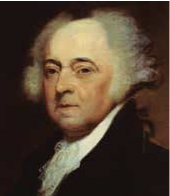
|
“The highest glory of the American Revolution was that it connected in one indissoluble bond the principles of civil government with the principles of Christianity”[17] 17. “Quotes About Religion and Government,” Christian Apologetics and Research Ministry, https://carm.org/quotes-religion-government . (John Quincy Adams). In fact, the motto of the American Revolution was “No king but King Jesus!”[18] 18. Charles A. Jennings, “No King But Jesus,” Truth in History, http://truthinhistory.org/no-king-but-jesus-2.html .
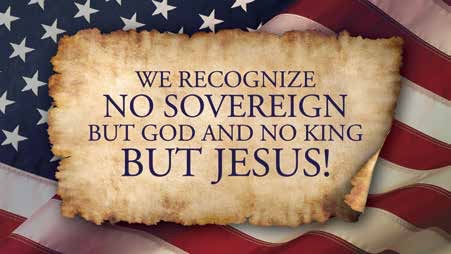
Was the American Revolution Biblically justified? We will assess the Declaration of Independence (the philosophical and theological foundation of the American Revolution), in order to determine if it is, in fact, consistent with the teachings of Scripture.
Unalienable Rights
As discussed in the first chapter, both divine revelation and the natural universe inform mankind of God’s law and therefore leave every person without excuse (Romans 1:20). That is why these truths are “self-evident.” The phrase “all men are created equal” stems from traditional American philosophy’s fundamental belief that man is created by God, and his spiritual nature is of supreme value and importance compared with the material world. This philosophy teaches that belief in God as our Creator is the fundamental link that unites individuals as equals into a society and means equal responsibility to God and His law, rather than equal possessions or abilities.
Therefore, in order to fulfill this responsibility to God, men have been “endowed by their Creator with certain unalienable Rights” (see chapter two).
because it establishes that civil government is not the
source of all things necessary for men. It also secures the
longevity of these rights because as God is the Creator,
He is also the Supreme Lawgiver; man (and therefore
civil government) not only lacks the authority to abolish
these rights but is in fact accountable to the Supreme
Lawgiver to ensure that they are protected.
Godless government, on the other hand, cannot be
eternally limited (i.e., limited by an unchanging
standard), for it recognizes no authority other
than itself and the changing whims of the people
and no rights other than those it bestows.
This understanding of the source of our rights is reflected in the writings of several of the Founding Fathers. John Dickinson (Constitution signer) defined an unalienable right as one “which God gave to you and which no inferior power has a right to take away.”[19] 19. David Barton, “Civic ignorance on display,” One News Now, http://www.onenewsnow.com/perspectives/miscellaneous/2015/02/16/civic-ignorance-on-display#.VPj21Wd0xy0 . John Adams said that unalienable rights are “rights … antecedent to all earthly government; rights that cannot be repealed or restrained by human laws; rights derived from the Great Legislator of the Universe.”[20] 20. Walter E. Williams,“Democracy or Republic?” The Freeman, http://fee.org/freeman/detail/democracy-or-republic .
Alexander Hamilton wrote:
| The Sacred Rights of mankind are not to be rummaged for among old parchments or musty records. They are written, as with a sunbeam, in the whole volume of human nature, by the Hand of the Divinity itself, and can never be erased or obscured by mortal power.[21] 21. “The Bill of Rights – The First Ten Amendments to the Constitution,” The Charters of Freedom, http://www.archives.gov/exhibits/charters/charters_of_ freedom_7.html . | 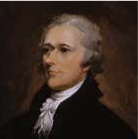
|
The Report of Conventions of Towns, Essex County, Massachusetts 1778 said, “Those rights which are unalienable, and of that importance, are called the rights of conscience. We have duties, for the discharge of which we are accountable to our Creator and benefactor, which no human power can cancel.” Thomas Jefferson, the man who penned the Declaration of Independence, said, “The God who gave us life gave us liberty at the same time; the hand of force may destroy, but cannot disjoin them.”[22] 22. “Quotations on the Jefferson Memorial,” The Jefferson Monticello, http://www.monticello.org/site/jefferson/quotations-jefferson-memorial .
The three unalienable rights listed in the Declaration are specifically mentioned in Scripture: life (Genesis 2:7; 9:6); liberty (Galatians 5:1, 13; 1 Peter 2:16; 2 Corinthians 3:17; Genesis 1:26-30); and the pursuit of happiness (Ecclesiastes 3:12-13). Note that the pursuit of happiness is not a condition; it is an ideal of self-development and growth. The pursuit of happiness involves the freedom of each and every individual to respond voluntarily in any associative or cooperative activity socially, economically, religiously, or politically. Each individual has the right, from their Creator, to live life and “pursue happiness” (i.e., have the freedom of opportunity to strive to realize to the full his own highest potential with regard to all aspects of life) from the beginning of life to its end.
Slavery
Many who criticize the claim that our nation was founded on Biblical principles point to the existence and legal protection of the practice of slavery as being inconsistent with the Scriptures and the idea of being created equal (e.g., Exodus 21:16). However, if we look at the writings and lives of the Founders, we discover that many were actually quite opposed to the institution of slavery. For example, John Adams wrote, “I always consider the settlement of America with reverence and wonder, as the opening of a grand scene and design in Providence for the illumination of the ignorant, and the emancipation of the slavish part of mankind all over the earth.”[23] 23. “Founders’ Library,” Founding.com, http://www.founding.com/founders_library/pageID.2128/default.asp . George Washington said, “I can only say that there is not a man living who wishes more sincerely than I do, to see a plan adopted for the abolition of it [slavery].”[24] 24. Deo Vindice – God Will Vindicate, https://sesquicentenary.wordpress.com/2012/09/20/i-can-only-say-that-there-is-not-a-man-living-who-wishes-more-sincerely-than-i-do-to-see-a-plan-adopted-for-the-abolition-of-slavery-we-should-not-look-back-unless-it-is-to-derive-useful-lessons/. Many colonies passed antislavery laws in the early 1770s, but King George III and his British governors vetoed them. Because of this, many anti-slavery Founders viewed independence as the best hope for fighting and abolishing slavery. Benjamin Franklin called slavery “an atrocious debasement of human nature” and “a source of serious evils.”[25] 25. FoundersQuotes.com, http://foundersquotes.com/quotes/slavery-is-such-an-atrocious-debasement-of-human-nature/. He and Benjamin Rush founded the Pennsylvania Society for Promoting the Abolition of Slavery in 1774. John Jay, who was the president of a similar society in New York, believed that “the honour of the states, as well as justice and humanity, in my opinion, loudly call upon them to emancipate these unhappy people. To contend for our own liberty, and to deny that blessing to others, involves an inconsistency not to be excused.”[26] 26. “What the Founders Said About Slavery,” http://www.foundingfatherquotes.com/quote/771. John Adams called slavery a “foul contagion in the human character” and “an evil of colossal magnitude.”[27] 27. “Quotes Database,” We Still Hold These Truths, http://westillholdthesetruths.org/quotes/author/john-adams. James Madison called it “the most oppressive dominion ever exercised by man over man.”[28] 28. “Madison Debates,” The Avalon Project, http://avalon.law.yale.edu/18th_century/debates_606.asp .
Thomas Jefferson initially composed a paragraph for the Declaration of Independence in which he condemned the British crown for protecting the slave trade. Unfortunately, it was deleted due to objections from South Carolina and Georgia. It stated:
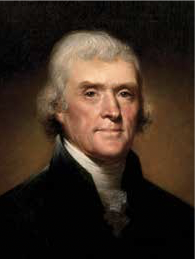 He [the king of Britain] has waged cruel war against human nature itself,
violating its most sacred rights of life & liberty in the persons of a distant
people who never offended him, captivating & carrying them into slavery in
another hemisphere, or to incur miserable death in their transportation thither.
This piratical warfare, the opprobrium of infidel powers, is the warfare of the
CHRISTIAN king of Great Britain. Determined to keep open a market where MEN
should be bought & sold, he has prostituted his negative for suppressing every
legislative attempt to prohibit or to restrain this execrable commerce: and that
this assemblage of horrors might want no fact of distinguished die, he is now
exciting those very people [the slaves living in the South] to rise in arms
among us, and to purchase that liberty of which he has deprived them, by
murdering the people upon whom he also obtruded them; thus paying off former
crimes committed against the liberties of one people, with crimes which he urges
them to commit against the lives of another.[29]
29. “Jefferson’s reference
to the King’s ‘prostitut[ing] his negative’ refers to the English government’s
repeated vetoes of attempts by colonial legislatures to restrict or halt the importation
of slaves.” (Quotation from: Mintz, S., & McNeil, S. “Declaring Independence,”
Digital History. Retrieved January, 10, 2015
from http://www.digitalhistory.uh.edu/disp_textbook.cfm?smtID=3&psid=112 ).
He [the king of Britain] has waged cruel war against human nature itself,
violating its most sacred rights of life & liberty in the persons of a distant
people who never offended him, captivating & carrying them into slavery in
another hemisphere, or to incur miserable death in their transportation thither.
This piratical warfare, the opprobrium of infidel powers, is the warfare of the
CHRISTIAN king of Great Britain. Determined to keep open a market where MEN
should be bought & sold, he has prostituted his negative for suppressing every
legislative attempt to prohibit or to restrain this execrable commerce: and that
this assemblage of horrors might want no fact of distinguished die, he is now
exciting those very people [the slaves living in the South] to rise in arms
among us, and to purchase that liberty of which he has deprived them, by
murdering the people upon whom he also obtruded them; thus paying off former
crimes committed against the liberties of one people, with crimes which he urges
them to commit against the lives of another.[29]
29. “Jefferson’s reference
to the King’s ‘prostitut[ing] his negative’ refers to the English government’s
repeated vetoes of attempts by colonial legislatures to restrict or halt the importation
of slaves.” (Quotation from: Mintz, S., & McNeil, S. “Declaring Independence,”
Digital History. Retrieved January, 10, 2015
from http://www.digitalhistory.uh.edu/disp_textbook.cfm?smtID=3&psid=112 ).
Regardless of the obvious inconsistency, the Declaration’s claim that all men are created equal remained a clear rebuke to slavery. The calls for independence were understood to have clear implications for slavery; though it failed to go far enough in clearly condemning and abolishing slavery, its intent and result were antislavery. James Otis wrote in 1761, “The colonists are by the law of nature free born, as indeed all men are, white and black. … Does it follow that it is right to enslave a man because he is black?”[30] 30. “Of the Natural Rights of Colonists,” Africans in America, http://www.pbs.org/wgbh/aia/part2/2h18t.html. Following independence, many states passed legislation restricting or banning the institution.[31] 31. For more information read David Barton’s online article: “The Founding Fathers and Slavery,” WallBuilders, July 2011, https://wallbuilders.com/founding-fathers-slavery/.
Civil Government
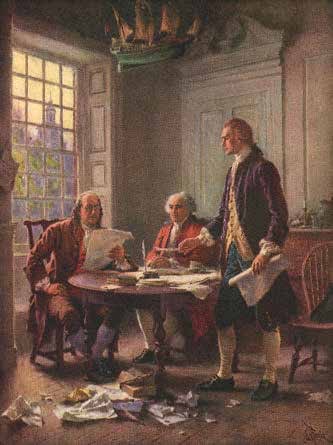 As discussed in chapter 2, the purpose of civil government is to protect the
God-given rights of the people who have entrusted their leaders with that
responsibility. The idea of “just powers” implies that the Founders believed
that God designed government to be limited in order to preserve liberty. This is
affirmed in 1 Samuel 8:10-18, where the nation of Israel is warned of the
dangers to liberty posed by expanding the powers of government. The reference to
“just powers” are those that the people grant to their government that they deem
necessary to secure their unalienable rights. The concept of “the consent of the
governed” mentioned here refers to the fact that nations are responsible to God
for the governing authorities that they support and therefore have the right to
establish their own system of government and rulers. As Patrick Henry put it,
“Rulers are the servants and agents of the people; the people are their
masters.”[32]
32. “Principle Four,” The American Ideal of 1776,
http://www.lexrex.com/enlightened/AmericanIdeal/yardstick/pr4_quotes.html.
This principle is consistent with Jesus’ words in Luke
22:25-26 in which he says that “he that is chief, as he that doth serve.”
As discussed in chapter 2, the purpose of civil government is to protect the
God-given rights of the people who have entrusted their leaders with that
responsibility. The idea of “just powers” implies that the Founders believed
that God designed government to be limited in order to preserve liberty. This is
affirmed in 1 Samuel 8:10-18, where the nation of Israel is warned of the
dangers to liberty posed by expanding the powers of government. The reference to
“just powers” are those that the people grant to their government that they deem
necessary to secure their unalienable rights. The concept of “the consent of the
governed” mentioned here refers to the fact that nations are responsible to God
for the governing authorities that they support and therefore have the right to
establish their own system of government and rulers. As Patrick Henry put it,
“Rulers are the servants and agents of the people; the people are their
masters.”[32]
32. “Principle Four,” The American Ideal of 1776,
http://www.lexrex.com/enlightened/AmericanIdeal/yardstick/pr4_quotes.html.
This principle is consistent with Jesus’ words in Luke
22:25-26 in which he says that “he that is chief, as he that doth serve.”
Tyranny
In chapter 4 we discussed the concept of tyranny—there are instances when civil government becomes corrupted by Satan’s lies to the point where it is actually operating in opposition to its divinely appointed purpose. In his interactions with the American colonies, King George III repeatedly violated the Charter of 1606, which guaranteed the colonists their rights as Englishmen and also declared them outside of his sphere of protection, effectively kicking them out of the British Empire. His blatant and repeated violation of his oath before God made him a tyrant in the colonists’ eyes rather than a king.
While appealing to 1 Samuel 15:23 as his authority, the influential minister Jonathan Mayhew said of King George III’s Stamp Act:
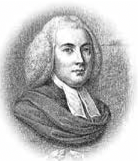
| The king is as much bound by his oath not to infringe the legal rights of the people, as the people are bound to yield subjection to him. From whence it follows that as soon as the prince sets himself above the law, he loses the king in the tyrant. He does, to all intents and purposes, un-king himself.[33] 33. Peter Marshall and David Manuel, The Light and the Glory (Grand Rapids, Michigan: Revell, 1977), 321-322. |
Samuel Adams concurred with Minister Mayhew in his statement “I scruple not to affirm it as my opinion that his [King George III’s] heart is more obdurate [stubborn], and his disposition towards the people of America is more unrelenting and malignant than was that of Pharaoh towards the Israelites in Egypt.”[34] 34. “Samuel Adams,” The Glorious Cause for American Independence, http://www.theamericanrevolution.org/PeopleDetail.aspx?people=7.
Revolution
In light of the claims by some that the American Revolution was in violation of Romans 13:1-7, was the Declaration of Independence a document condoning a rebellion against God-ordained authority, or was it a rightful overthrow of tyrannical government? The answer depends on which of the two approaches to the meaning of “ordained of God” in Romans 13 is accepted. Timothy and Chuck Baldwin in their book Romans 13: The True Meaning of Submission present a logical argument, explained in this way: (1) God’s ordination of government is limited and conditional, and therefore the citizen has an inherent duty to engage and correct government to ensure that it operates within its covenant limitations; or (2) God’s ordination of government is unlimited and unconditional, and therefore the citizen should willingly submit to whatever the government does. The key to determining which approach is correct lies in the answer to the question “Is someone superior to government?” As discussed in chapter 2, God is (Psalm 22:28). Government is therefore limited, and obedience and submission to it is conditional—the government must be promoting righteousness and justice (Romans 13; Proverbs 16:12). If God says that He loathes unjust governments and will judge them, how can they be His ordained ministers? True, they were granted that position, but once they have proven to fail at it, they must be replaced or incur God’s judgment on the nation. To support the second approach is to (1) ignore the conditions and purposes God placed on government; (2) accept the fact that no person living on this earth has any absolute, secured rights, as given by God; (3) accept that no one has any right to resist, change, petition, or participate in governmental change or action; (4) accept that might makes right— whoever wins power obtains the ordination of God; and (5) voluntarily put oneself into slavery.[35] 35. Timothy and Chuck Baldwin, Romans 13: The True Meaning of Submission, 2nd ed. (Kalispell, Montana: Liberty Defense League, 2011), logical argument gathered from summation of the book’s ideas.
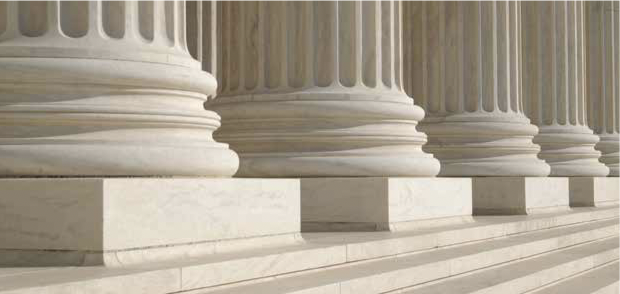
As discussed in chapter 2, Christians are forbidden to overthrow the institution of government and live in anarchy, but they are not required to blindly submit to every human claim to sovereignty. The institution of government is ordained by God, but this does not mean that God has approved every specific organization/person claiming to be a civil government/ruler. God is disgusted by and will judge oppressive rulers (Isaiah 10:1-4; 14:5-6). Likewise, God has also ordained church and family governments, but not everything that men call a “church” or “family” is approved by Him. Only if an institution meets His definition does it have His authority. Since good government is to safeguard the unalienable rights of the people, if it fails to do so the people have a right to modify the government and, if necessary, replace it. In so doing, they must never be without government and must work through their lower-level leaders. (John Calvin, Martin Luther, and John Knox promoted this idea, and this is the course that the American colonists took.)
Public officials who exceed the limits of the powers delegated to them by the law violate the people’s God-given, unalienable rights and make themselves defaulting trustees, usurpers, oppressors, and tyrants. They replace Rule-by-Law (God) with Rule-by-Man. By acting lawlessly, they free the people from any duty of submission to them because legally and morally, under Rule-by-Law, submission by the people is required only to law and not to law-defying public servants (Proverbs 16:12) who are a snare to the people (Job 34:24-30). The people are therefore obligated to oppose all violators of these rights, and to fail to do so is to defy duty to God as the giver of these rights and invites His judgment upon the nation (Micah 3:9-12; 2 Kings 24:3-4; 2 Chronicles 19:2; Jeremiah 25:12-32; Isaiah 3:1-3, 6, 7, 11; 13:11; 14:21-25). Since they operate in opposition to the God-ordained purpose for civil government, tyrannical governments are actually the violators of Romans 13, and those who resist them in a lawful manner are actually supporting God’s ordination.
Reverend Jacob Duché (first chaplain of the Continental Congress) argued in favor of the American position, explaining:
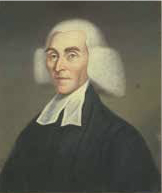 Inasmuch as all rulers are in fact the servants of the public and appointed for
no other purpose than to be “a terror to evil-doers and a praise to them that do
well”(c.f., Rom. 13:3), whenever this Divine order is inverted—whenever these
rulers abuse their sacred trust by unrighteous attempts to injure, oppress, and
enslave those very persons from whom alone, under God, their power is
derived—does not humanity, does not reason, does not Scripture, call upon the
man, the citizen, the Christian of such a community to “stand fast in that
liberty wherewith Christ hath made them free”(Galatians 5:1). The Apostle
enjoins us to “submit to every ordinance of man for the Lord’s sake,” but surely
a submission to the unrighteous ordinances of unrighteous men, cannot be “for
the Lord’s sake,” for “He loveth righteousness and His countenance beholds the
things that are just.”[36]
36. David Barton, “The American Revolution:
Was it an Act of Biblical Rebellion?” Wallbuilders,
http://www.wallbuilders.com/LIBissuesArticles.asp?id=24548.
Inasmuch as all rulers are in fact the servants of the public and appointed for
no other purpose than to be “a terror to evil-doers and a praise to them that do
well”(c.f., Rom. 13:3), whenever this Divine order is inverted—whenever these
rulers abuse their sacred trust by unrighteous attempts to injure, oppress, and
enslave those very persons from whom alone, under God, their power is
derived—does not humanity, does not reason, does not Scripture, call upon the
man, the citizen, the Christian of such a community to “stand fast in that
liberty wherewith Christ hath made them free”(Galatians 5:1). The Apostle
enjoins us to “submit to every ordinance of man for the Lord’s sake,” but surely
a submission to the unrighteous ordinances of unrighteous men, cannot be “for
the Lord’s sake,” for “He loveth righteousness and His countenance beholds the
things that are just.”[36]
36. David Barton, “The American Revolution:
Was it an Act of Biblical Rebellion?” Wallbuilders,
http://www.wallbuilders.com/LIBissuesArticles.asp?id=24548.
The Scriptures provide several examples of leaders who rebelled against tyranny in obedience to God: Moses, Gideon, Ehud, Jepthah, David (against Absalom), Jehoiada the priest (against Athaliah, 2 Kings 11), Samson, and Deborah (praised in Hebrews 11). The familiarity of the Founding Fathers with this Scriptural precedent is evidenced by Benjamin Franklin’s proposal for the Seal of the United States of America: “Moses lifting up his wand and dividing the Red Sea, and Pharaoh in his chariot overwhelmed with the waters. This motto: ‘Rebellion to tyrants is obedience to God.’” Thomas Jefferson proposed: “The children of Israel in the wilderness, led by a cloud by day and a pillar of fire by night.” The seal as finally approved by the committee was:
Pharaoh sitting in an open chariot, a crown on his head and a sword in his hand, passing through the divided waters of the Red Sea in pursuit of the Israelites; rays from a Pillar of Fire in the cloud, expressive of the Divine presence and command, beaming on Moses, who stands on the shore and extending his hand over the sea, causes it to overwhelm Pharaoh.[37] 37. J. D. Gowdy, “The Great Seal (1776),” The Washington, Jefferson, and Madison Institute, March 12, 2012, http://wjmi.blogspot.com.
As referenced in the Declaration, the American colonists diligently pursued reconciliation from 1765 to 1776 in an attempt to restore their current governing authorities to fulfilling their God-ordained role (Appeal of 1775, May 1776 “Olive Branch Petition”—each submitted in a submissive, conciliatory tone). John Witherspoon (a theologian and signer of the Declaration of Independence) testified to this desire for restoration:
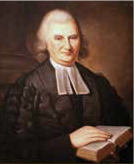
|
On the part of America, there was not the most distant thought of subverting the
government or of hurting the interest of the people of Great Britain, but of
defending their own privileges from unjust encroachment; there was not the least
desire of withdrawing their allegiance from the common sovereign [King George
III] till it became absolutely necessary—and indeed, it was his own choice.[38]
38. David Barton, “The American Revolution: Was it an Act of Biblical
Rebellion?” Wallbuilders,
http://www.wallbuilders.com/LIBissuesArticles.asp?id=24548.
John Witherspoon, The Works of John Witherspoon (Edinburgh: J. Ogle, 1815), Vol. IX, p. 250, "The Druid," Number III. |
William Pitt (in the House of Lords, 1775) admitted:
| When your lordships look at the papers transmitted us from America, when you consider their decency, firmness, and wisdom, you cannot but respect their cause, and wish to make it your own … all attempts to impose servitude on such men, to establish despotism over such a mighty continental nation—must be vain— must be futile.[39] 39. “The Continental Congress; Lexington,” History of the USA, http://www.usahistory.info/American-Revolution/Lexington.html. | 
|
Sadly, the British Crown responded to these appeals with military actions, and the Americans took up arms in self-defense. In the minds of the Colonies, Great Britain was seen as a foreign power invading America. David Barton suggests that the colonists defended their homeland, making their cause a conservative counterrevolution against the British Crown’s attempt to overthrow the legitimate colonial governments. In that sense, then, it is more accurate to name the conflict that gave birth to the United States of America the “American War for Independence” rather than the “American Revolution.”[40] 40. David Barton, “Rebellion or Rightful Overthrow?” in The Founder’s Bible, ed. Brad Cummings (Newbury Park, California: Shiloh Road Publishers, LLC, 2012), 1763-1770 (paraphrase).
Because the colonists were resisting tyranny under the authority of their governing representatives in an attempt to restore their government to God’s ordained design, they believed that their actions were justified before God. They also believed that though God would not bless an offensive war, He would bless the efforts of self-defense (2 Samuel 10:12; Nehemiah 4:13-14, 20-21; Zechariah 9:8): “’Tis immortality to sacrifice ourselves for the salvation of our country. We fear not death”[41] 41. Founding Father Quotes, http://www.foundingfatherquotes.com/quote/755. (John Hancock). The Founders rated their economic interests and security as secondary to liberty and independence. The sacrifices of the Continental troops at Valley Forge and throughout the war further evidenced this conviction. William Pitt observed of the colonists: “[They] prefer poverty with liberty, to golden chains and sordid affluence … .It is the alliance of God and nature—immutable, eternal, fixed as the firmament of Heaven!”[42] 42. “Respect Due to the Founders,” The American Ideal of 1776, https://www.lexrex.com/index.php/the-american-ideal-of-1776/american-ideal-part-3/respect-due-the-founders.
Summary
In this chapter we learned (1) The two “revolutions” of 1776 were for individual liberty and for independence from foreign rule. Many Americans tried to secure the former under British rule, but realizing it to be futile, resorted to the latter after exhausting alternatives. (2) For the anti-slavery majority of the Founders, ending slavery and/or the slave trade was an additional motivation for independence. (3) The American War for Independence was based on the idea that God is the source of all law, and fulfilling our responsibilities to Him necessitates certain unalienable rights. God has instituted civil government to safeguard those rights. When men pervert civil government by turning it into a tool to serve themselves instead of God, thereby destroying our God-given rights, it becomes tyranny and must be either altered or abolished by those who have the authority and ability to do so (i.e., the lower magistrates/elders of the people). Failure to take corrective action amounts to tacit support for the tyranny’s rebellion against God and invites the judgment of God upon the nation. (4) Therefore, the colonists were not engaged in a lawless revolution against God and His standards of law and justice. It was a lawful (declared and conducted in submission to a civil government of chosen representatives and God’s authority) defense of God-given rights and the God-ordained institution of civil government against a king-turned-tyrant who had clearly and repeatedly violated his responsibilities to the people.
↩ 14. This is the perspective of John MacArthur, found in several of his Internet articles.
↩ 15. “The United States of America,” Teach Our History, http://www.teachourhistory.com.
↩ 16. John Adams, The Adams-Jefferson Letters: The Complete Correspondence Between Thomas Jefferson and Abigail and John Adams, ed. Lester J. Cappon (Chapel Hill, North Carolina: the University of North Carolina Press, 1988), 338-340.
↩ 17. “Quotes About Religion and Government,” Christian Apologetics and Research Ministry, https://carm.org/quotes-religion-government.
↩ 18. Charles A. Jennings, “No King But Jesus,” Truth in History, http://truthinhistory.org/no-king-but-jesus-2.html.
↩ 19. David Barton, “Civic ignorance on display,” One News Now, http://www.onenewsnow.com/perspectives/miscellaneous/ 2015/02/16/civic-ignorance-on-display#.VPj21Wd0xy0.
↩ 20. Walter E. Williams, “Democracy or Republic?” The Freeman, http://fee.org/freeman/detail/democracy-or-republic.
↩ 21. “The Bill of Rights – The First Ten Amendments to the Constitution,” The Charters of Freedom, http://www.archives.gov/exhibits/charters/charters_of_ freedom_7.html.
↩ 22. “Quotations on the Jefferson Memorial,” The Jefferson Monticello, http://www.monticello.org/site/jefferson/quotations-jefferson-memorial.
↩ 23. “Founders’ Library,” Founding.com, http://www.founding.com/founders_library/pageID.2128/.
↩ 24. Deo Vindice – God Will Vindicate, https://sesquicentenary.wordpress.com/2012/09/20/i-can-only-say-that-there-is-not-a-man-living-who-wishes-more-sincerely-than-i-do-to-see-a-plan-adopted-for-the-abolition-of-slavery-we-should-not-look-back-unless-it-is-to-derive-useful-lessons/.
↩ 25. FoundersQuotes.com, http://foundersquotes.com/quotes/slavery-is-such-an-atrocious-debasement-of-human-nature/.
↩ 26. “What the Founders Said About Slavery,” http://www.foundingfatherquotes.com/quote/771.
↩ 27. “Quotes Database,” We Still Hold These Truths, http://westillholdthesetruths.org/quotes/author/john-adams.
↩ 28. “Madison Debates,” The Avalon Project, http://avalon.law.yale.edu/18th_century/debates_606.asp.
↩ 29. “Jefferson’s reference to the King’s ‘prostitut[ing] his negative’ refers to the English government’s repeated vetoes of attempts by colonial legislatures to restrict or halt the importation of slaves.” (Quotation from: Mintz, S., & McNeil, S. “Declaring Independence,” Digital History. Retrieved January, 10, 2015 from http://www.digitalhistory.uh.edu/disp_textbook.cfm?smtID=3&psid=112).
↩ 30. “Of the Natural Rights of Colonists,” Africans in America, http://www.pbs.org/wgbh/aia/part2/2h18t.html.
↩ 31. For more information read David Barton’s online article: “The Founding Fathers and Slavery,” WallBuilders, July 2011, https://wallbuilders.com/founding-fathers-slavery/.
↩ 32. “Principle Four,” The American Ideal of 1776, http://www.lexrex.com/enlightened/AmericanIdeal/ yardstick/pr4_quotes.html.
↩ 33. Peter Marshall and David Manuel, The Light and the Glory (Grand Rapids, Michigan: Revell, 1977), 321-322.
↩ 34. “Samuel Adams,” The Glorious Cause for American Independence, http://www.theamericanrevolution.org/PeopleDetail.aspx?people=7.
↩ 35. Timothy and Chuck Baldwin, Romans 13: The True Meaning of Submission, 2nd ed. (Kalispell, Montana: Liberty Defense League, 2011), logical argument gathered from summation of the book’s ideas.
↩ 36. David Barton, “The American Revolution: Was it an Act of Biblical Rebellion?” Wallbuilders, http://www.wallbuilders.com/LIBissuesArticles.asp?id=24548.
↩ 37. J. D. Gowdy, “The Great Seal (1776),” The Washington, Jefferson, and Madison Institute, March 12, 2012, http://wjmi.blogspot.com.
↩ 38. David Barton, “The American Revolution: Was it an Act of Biblical Rebellion?” Wallbuilders, http://www.wallbuilders.com/LIBissuesArticles.asp?id=24548.
John Witherspoon, The Works of John Witherspoon (Edinburgh: J. Ogle, 1815), Vol. IX, p. 250, "The Druid," Number III.
↩ 39. “The Continental Congress; Lexington,” History of the USA, http://www.usahistory.info/American-Revolution/Lexington.html.
↩ 40. David Barton, “Rebellion or Rightful Overthrow?” in The Founder’s Bible, ed. Brad Cummings (Newbury Park, California: Shiloh Road Publishers, LLC, 2012), 1763-1770 (paraphrase).
↩ 41. Founding Father Quotes, http://www.foundingfatherquotes.com/quote/755.
↩ 42. “Respect Due to the Founders,” The American Ideal of 1776, https://www.lexrex.com/index.php/the-american-ideal-of-1776/american-ideal-part-3/respect-due-the-founders.